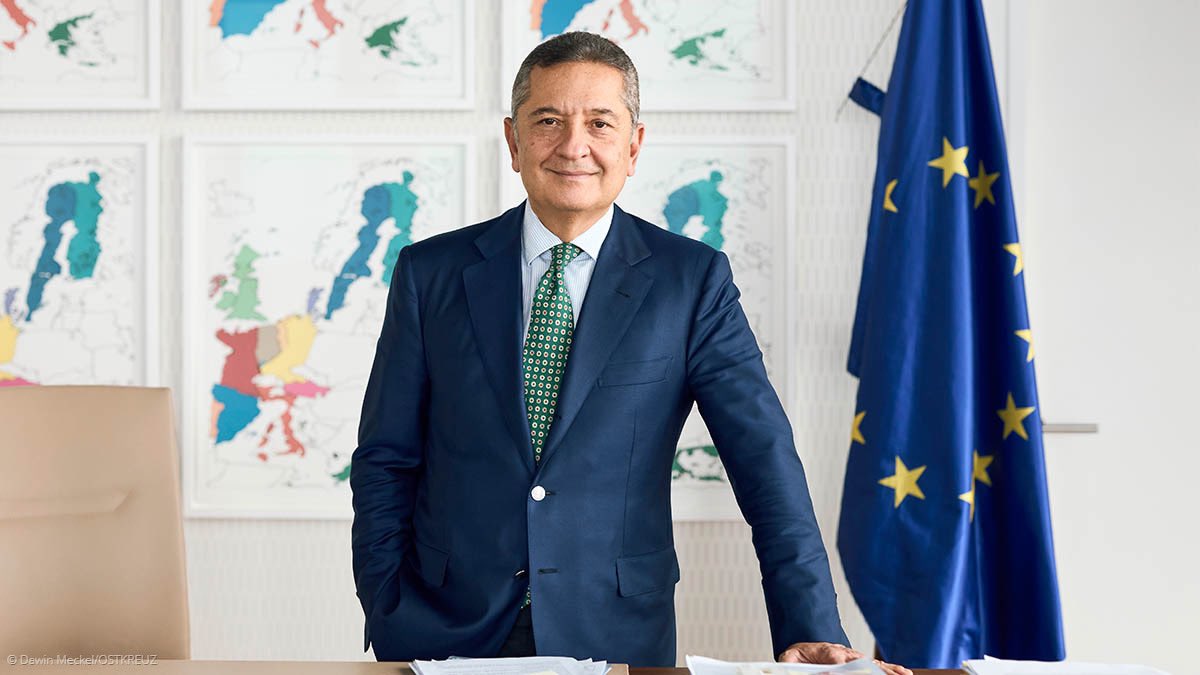Let’s take a trip down memory lane with some of our highlights from this year…
JANUARY: question time! We received more than 280 questions under the hashtag #AskDraghi, on cryptocurrencies, Europe’s economic recovery and the likelihood of another global crisis. Watch President Draghi’s response on bitcoin.
FEBRUARY: the discussion continued. Chief Economist Peter Praet answered questions in a live Twitter Q&A. You asked about central banking and beyond, with topics ranging from economic development to how he pronounces his last name (the “e” is silent) twitter.com/i/moments/9616… 

MARCH … was enlightening! At the #Luminale2018 festival of light in Frankfurt, our main building transformed into a colourful #crosshatch light show.
APRIL: one year after we published our guidance on non-performing loans, banks supervised by the ECB had cut their non-performing loans by one fifth. The guidance spells out how fast we expect banks to get rid of, or provision for, loans that turn sour bankingsupervision.europa.eu/about/ssmexpla… 

MAY: a new Vice-President for the ECB. With gratitude, we said farewell to Vítor Constâncio, who ended his term as Vice-President of the ECB. We welcomed Luis de Guindos, who took over as Mr Constâncio’s successor. 

JUNE: our anniversary! We celebrated 20 years of working to keep prices stable for the 340 million people who share the euro as their currency. Check out our explainer on the ECB’s tasks to find out more about how our policies affect people’s daily lives ecb.europa.eu/explainers/tel…
JULY: research confirms that the ECB’s policy measures have lowered inequality in the eurozone. Watch our explainer on how our monetary policy has reduced inequality or read the full paper ecb.europa.eu/pub/pdf/scpwps…
AUGUST: united in diversity. On the occasion of the #EuropeanCulturalDays open air concert, Lithuanian musicians gathered in front of the ECB. Together we celebrated the 100th anniversary of the country’s independence. 

SEPTEMBER: we revealed our new €100 and €200 #banknotes. With brighter colours, a fresh design and enhanced security features, the new banknotes from the Europa series will be available from 28 May 2019 ecb.europa.eu/euro/banknotes… 

OCTOBER: have you ever thought that hackers could actually be the good guys? In a @TEDx talk at the University of Mannheim, our cyber resilience expert Emran Islam explained how #EthicalHacking helps against cyberattacks. Watch his talk 

NOVEMBER: waiting days for your bank transfers to arrive could become a thing of the past! We launched TIPS, a brand new service your bank can use to make your electronic payments immediately, around the clock, anywhere in Europe ecb.europa.eu/paym/target/ti…
DECEMBER: one market with one money. With the euro turning 20 soon, President Mario Draghi looks back at the creation of the Single Market and its benefits in a speech @SantAnnaPisa in Italy. Read the full thread 
https://twitter.com/ecb/status/1073890766223826946

• • •
Missing some Tweet in this thread? You can try to
force a refresh








